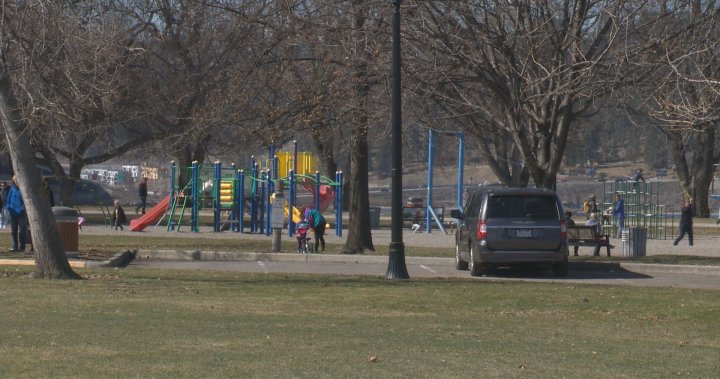
Kelowna, B.C.’s mayor is hoping to see changes to the rules for drug decriminalization in B.C.
Since the end of January, adults in the province have been able to carry up to 2.5 grams of opioids, cocaine, meth and ecstasy without fear of criminal penalty.
Now, Mayor Tom Dyas is seeking modifications to further protect kids.
He wants to add playgrounds and areas of parks frequented by kids to the list of locations where drug possession is still banned.
“There are areas that were already put into place [where drugs remain criminalized] with regards to elementary schools and daycares and airports,” said Dyas.
“All we are doing is just broadening the scope a little bit of areas that we feel like could potentially put children at risk or young families at risk.”
For Dyas it’s a safety issue.
“There [are] concerns with respect to community areas where syringes or foils or things can still be left on the ground which could potentially hurt members of our community,” said Dyas.
“It is safety for some of our most vulnerable which are the children within our community.”
Dyas said he doesn’t want to address the issue through a city bylaw as he wants to the rules to be the same province-wide to prevent the uncertainly created if each municipality makes its own regulation.
Interior Health did not have anyone available Tuesday to speak directly to the Kelowna mayor’s proposed changes.
However, the health authority has previously argued that bylaws prohibiting public drug use and fining people could undermine decriminalization by reinforcing stigma.
“Remember that people who use drugs are not inherently dangerous,” said Medical Health Officer Dr. Carol Fenton in a March 10 interview.
“If people are concerned about visible drug use or drug paraphernalia it is really important to check in and say does my community have a safe place for drug users to go and do their drugs?”
Kelowna does have overdose prevention sites.
In a statement, the provincial Ministry of Mental Health and Addiction said it is working “to support municipalities in adopting a public health approach to substance use,” which suggests the province may not be considering expanding the list of sites where drugs are still criminalized.
“The Government of BC is mindful that aggressive enforcement activities such as ticketing may drive people to use drugs alone. With the increasingly toxic drug supply, using alone can be fatal,” the provincial statement said.
Meanwhile, as the mayor argues for more limits on public drug use, the city is also investigating the possibility of allowing alcohol consumption on beaches.
“What we want to make sure that we don’t do is look at taking our average citizens who decide that they would…potentially like to just sit down and watch a sun set and have a beverage and have them fined, said Dyas.
Fenton has argued that enforcement around rules about alcohol use in public can have similar negative impacts to drug enforcement.
“From a public health perspective we definitely do not want to encourage visible alcohol consumption on any public space, but at the same time we recognize the harms from the enforcement of those types of policies. They usually disproportionally impact our vulnerable community members and don’t actually solve the underlying reasons or problems which are usually a lack of a better or safer place to do that,” said Fenton.

© 2023 Global News, a division of Corus Entertainment Inc.
















